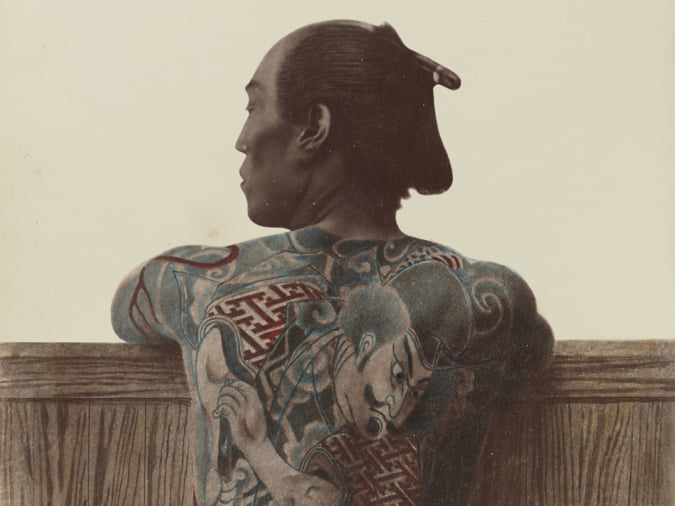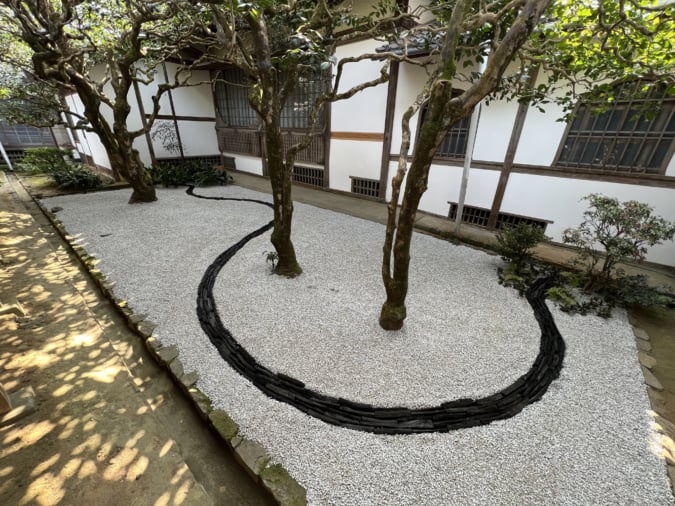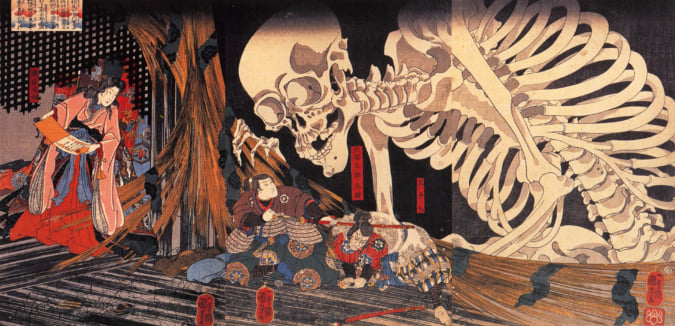Biopic of the First Foreign Samurai to be Produced
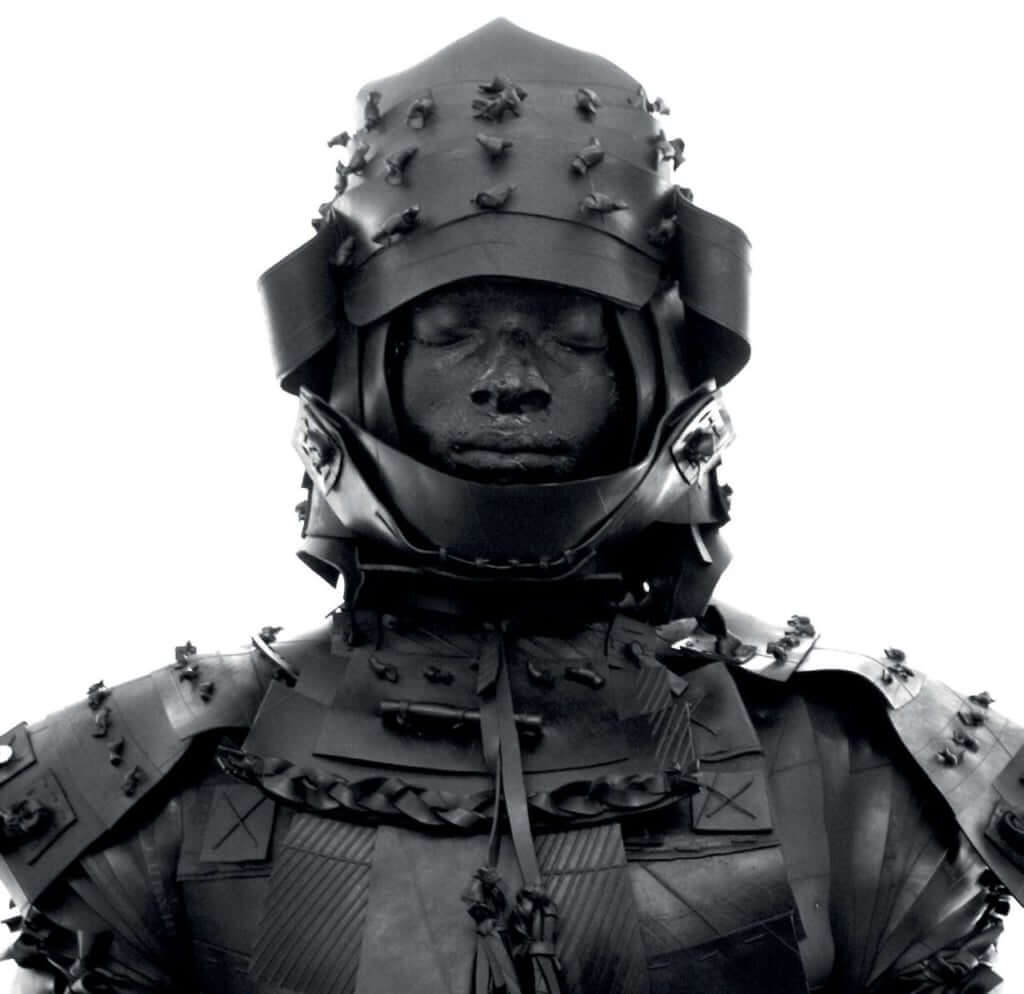
Yasuke vu par l’artiste Nicola Roos
Metro-Goldwyn-Mayer is currently producing a biopic focused on the complex relationship between the African samurai, Yasuke, and the warlord Oda Nobunaga. The Homeric destiny of the first foreign samurai, Yasuke, remains anchored in Japanese memory, lending itself well to a feature film with an odyssey that is totally out of the ordinary.
Born on the island of Mozambique, Yasuke arrived in Japan as a slave at the end of the 16th century and ended his life as a samurai, an exceptional privilege for the time. His story is rich in twists and turns, although little information can accurately trace its source. The main historical inspiration comes from the book History of Japan written by Jesuit missionary Luis Frois. Yasuke, known only by his Japanese moniker, caused a sensation when he arrived in the archipelago in July 1579. He was accompanying Alessandro Valignano, a priest charged with overseeing Jesuit missions; as a 6ft3 black man, he did not go unnoticed.
In March 1581, the two men left Kyushu Island for Kyoto. The news of Yasuke’s arrival reached the great warlord Oda Nobunaga. The imposing and intelligent Yasuke, who already spoke fluent Japanese, was ordered by Nobunaga to take a bath, to make sure that black was indeed its original skin colour. Fascinated by this newcomer, Nobunaga requested permission from the Jesuit for Yasuke to become his servant. The slave, once released, soon became one of the warlord’s bodyguards, before entering his inner circle and being elevated to the rank of samurai. An honour to which few warriors, let alone foreigners, can claim. In addition to the two sabres that Yasuke brandished, Nobunaga also gave him his own spear; he was even gifted a house and the adopted daughter of the lord as his wife.
Yasuke became a stalwart warrior and became famous in 1582 during the battle of Tenmokuzan against Takeda Katsuyori, Oda Nobunaga’s rival. His proximity to the great lord aroused envy in the province, including from Akechi Mitsuhide who accused Nobunaga of being responsible for the death of his mother. Envious and bruised, Mitsuhide launched an attack against his opponent, who found himself in a delicate position, unable to face the bloodthirsty horde. Rather than surrender, Nobunaga undertook seppuku, ritual suicide, under the watch of his loyal right-hand man Yasuke, who preferred to die in combat than kill himself. He took his weapons and went back to fight, but was captured by Mitsuhide and narrowly escaped being killed. In a letter written in November 1582, Father Luis Frois writes: ‘For Akechi Mitsuhide, Yasuke was not a man, he was an animal, so there was no need to kill him. He was to be sent to India to be among priests.’ It is unclear whether the samurai returned to Africa or India or whether he remained faithful to Japan. No trace survived following his capture and so the legend of Yasuke, the first foreign samurai, remains lost in the meanders of history.
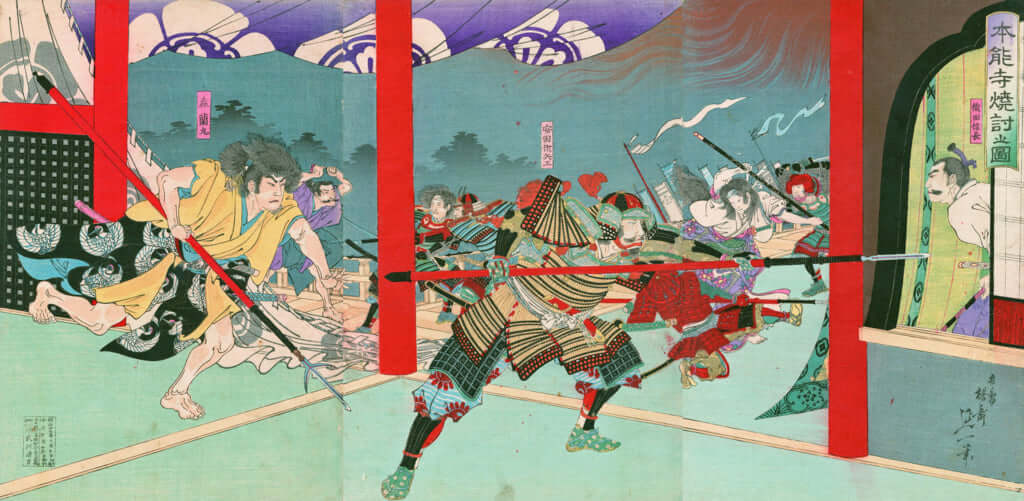
Nobukazu Yōsai [Public domain]
TRENDING
-
Colour Photos of Yakuza Tattoos from the Meiji Period
19th-century photographs have captured the usually hidden tattoos that covered the bodies of the members of Japanese organised crime gangs.

-
The Tradition of the Black Eggs of Mount Hakone
In the volcanic valley of Owakudani, curious looking black eggs with beneficial properties are cooked in the sulphurous waters.

-
A Rare Japanese Garden Hidden Within Honen-in Temple in Kyoto
Visible only twice a year, ‘Empty River’, designed by landscape architect Marc Peter Keane, evokes the carbon cycle.

-
Gashadokuro, the Legend of the Starving Skeleton
This mythical creature, with a thirst for blood and revenge, has been a fearsome presence in Japanese popular culture for centuries.

-
Recipe for Ichiraku Ramen from ‘Naruto’ by Danielle Baghernejad
Taken from the popular manga with the character of the same name who loves ramen, this dish is named after the hero's favourite restaurant.

